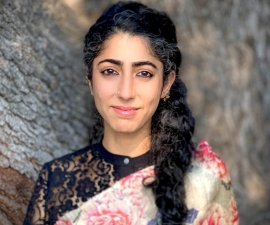

Research Bio
Aarti Sethi is assistant professor at the Department of Anthropology at UC Berkeley. She is a socio-cultural anthropologist with primary interests in agrarian anthropology, political-economy, and the study of South Asia. Her research interests broadly focus on the transformation of rural life-worlds and agrarian capitalism. She is currently working on two projects. The first is a book that examines cash-crop agricultural economies to understand how monetary debt undertaken for transgenic cotton-cultivation transforms intimate, social, and productive relations in rural society. She is particularly concerned with understanding the political economies of small-holder agrarian production in the era of climate change. Her second project called Republic of Readers explores the relationship between reading literacy and libraries as sites of postcolonial democracy and citizenship. While her work is ethnographically located in South Asia, it engages broader debates on agrarian change that view agriculture not as vestigial but as central to the emergence of modern industrial capitalisms. She researches the global linkages between modern state power and rural socio-economic processes, particularly for the intensive capitalization, industrialization and hybridization of agriculture in the twentieth and twenty-first centuries.
Alongside her research in agrarian anthropology she is interested in the social life of agrarian technology, the politics of knowledge and literacy, the anthropology of religion, the history of anthropological thought, multi-species ethnography, and bringing archives and ethnography together. She has previously published in urban ethnography, cinematic, media and visual cultures. Sethi holds degrees in political science, and cinema and cultural studies, from Delhi University and Jawaharlal Nehru University, New Delhi and received her Ph.D. in anthropology from Columbia University. Prior to joining UC Berkeley she held postdoctoral fellowships at Brown and Harvard university.
Research Expertise and Interest
agrarian anthropology, ruralism, feminist anthropology, political economy, Comparative Religion, South Asia, debt and capitalism, climate change, cinema and media culture, caste, socio-economic inequality, politics of knowledge, multi-species ethnography
